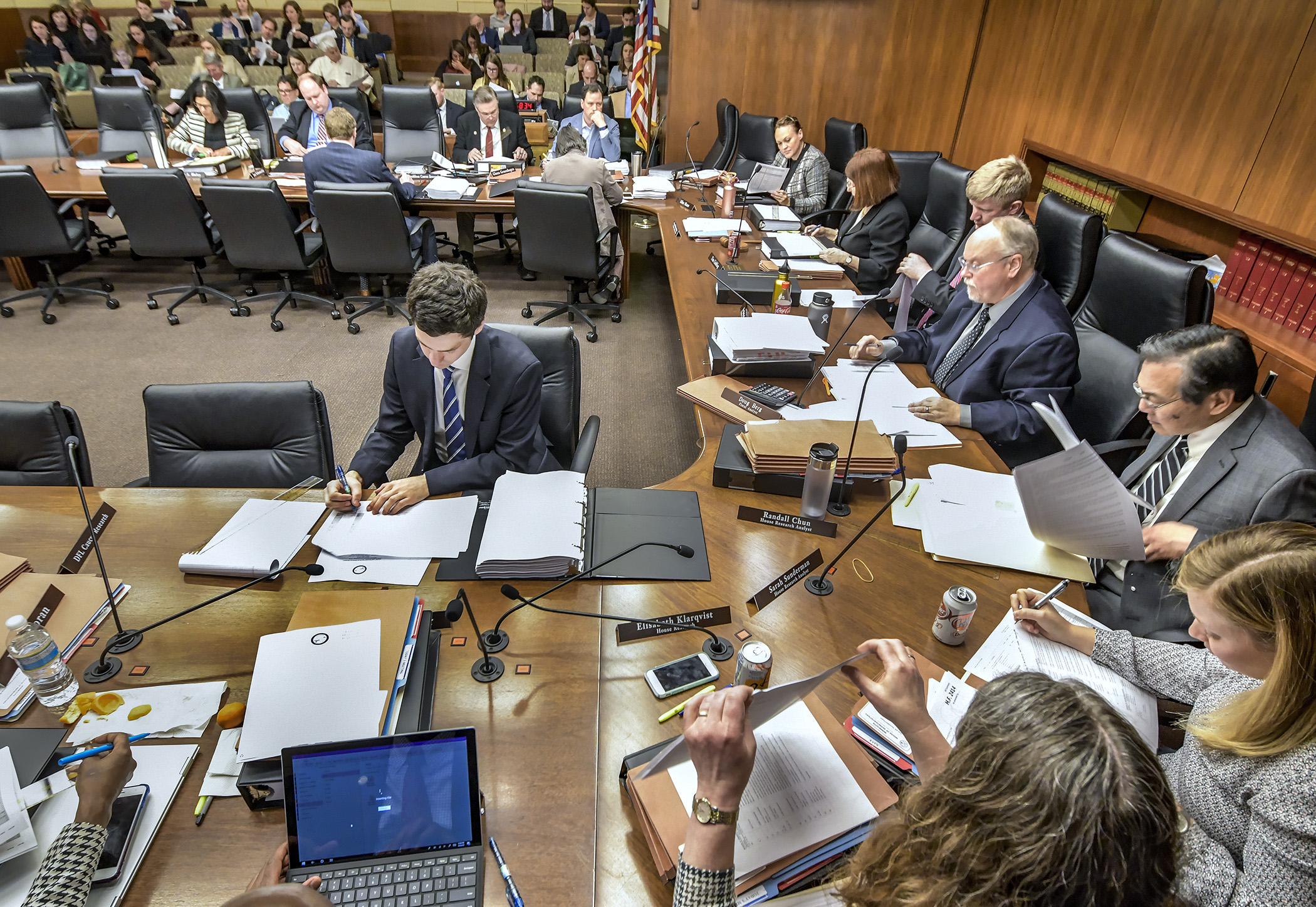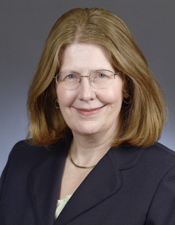Health and human services omnibus highlights focus on prevention and equity

The omnibus health and human services finance bill focuses on initiatives intended to ensure equity and emphasizes prevention-focused approaches meant to address issues by “getting upstream.”
Division chair Rep. Tina Liebling (DFL-Rochester) sponsors HF2414, which was amended by the House Health and Human Services Finance Division Tuesday before public testimony began.
The division intends to continue hearing testimony Wednesday. Discussion is slated to continue Friday with the division mark-up.
It largely draws on the health and human services proposals in Gov. Tim Walz’s budget recommendations and includes provisions from the House Early Childhood Finance and Policy Division.
The omnibus health and human services finance bill would be primarily funded in the 2020-21 biennium through a $128.57 million increase from the General Fund, totaling about $15 billion in overall spending.
A large chunk of the bill — about 150 of its 998 pages — comes from HF90, sponsored by Rep. Jennifer Schultz (DFL-Duluth), which would take a “comprehensive” approach to protect Minnesotans from elder abuse, including the licensure of assisted living facilities and protections against retaliation.
The bill would also repeal the sunset of a 2 percent “Provider Tax,” projected to bring in $991.55 million in revenue over the upcoming biennium.
This “significant … funding mechanism” is used to improve access to health care and supports statewide prevention work, said Health Commissioner Jan Malcolm.
Malcolm called the bill, as a whole, “very, very significant” and commended its prevention-oriented approach that will save “money … time, and … lives.”
The bill is “an extremely well-balanced set of strategies to improve the health of Minnesotans,” she said.
Deputy Human Services Commissioner Claire Wilson also stressed the bill’s potential to improve access for people.
“We do believe it will also move us closer to ending the alarming disparities that are faced by so many members of our community,” she said.
Wilson expressed concern, however, over the bill’s proposed funding for IT system upgrades, which falls short of the $20 million included in the governor’s budget. Modernization is critical for the department to “move forward into a human-centered delivery system.”
Other notable provisions include:
- $44.81 million to increase MFIP cash grants by $100 a month, the first increase since 1986;
- $25.72 million to eliminate the basic sliding fee wait list for the Child Care Assistance Program;
- $21.2 million for an insulin assistance program;
- $10.84 million to update the maximum rates for the Child Care Assistance Program;
- $8.7 million for ONECare, uniform pharmacy administration and dental reform;
- $7.46 million to fund suicide prevention programming;
- $4.35 million to fund a Statewide Tobacco Cessation Quitline;
- $4.16 to establish and run a Child Welfare Training Academy and conduct a study on child protection worker caseloads;
- $2.5 million to reduce TEFRA parental fees by 15 percent, improving access to supports for children with disabilities;
- $2.09 million to strengthen oversight of CCAP, plus an additional $153,000 in supplemental funds for provider registration and oversight;
- $1.48 million to support medical cannabis regulation, and an additional $241,000 to support program modifications;
- $1 million in grants to foster culturally competent mental health care practices;
- $1 million in HIV prevention grants;
- $900,000 to provide Medical Assistance coverage for weight-loss drugs;
- $122,000 to create additional content that will streamline the TEFRA enrollment process for the parents of children with disabilities;
- $60,000 to increase the tobacco sales age to 21; and
- $27,000 to implement Heaven’s Law, improving communication with child protection departments in different states.
What’s in the bill?
The following are selected bills that have been incorporated in part or in whole into the omnibus health and human services finance bill.
- HF499 (Kresha)
- HF563 (Moran)
- HF748 (Mann)
- HF792 (Vang)
- HF815 (Acomb)
- HF840 (Lien)
- HF926 (Bernardy)
- HF930 (Kunesh-Podein)
- HF1050 (Moran)
- HF1281 (Morrison)
- HF1388 (Hornstein)
- HF1801 (Pinto)
- HF1867 (Zerwas)
- HF1875 (Wazlawik)
- HF2094 (Liebling)
- HF2184 (Liebling)
- HF2319 (Pinto)
- HF2459 (Loeffler)
- HF2548 (Schultz)
- HF2575 (Pinto)
Related Articles
Search Session Daily
Advanced Search OptionsPriority Dailies
Ways and Means Committee OKs proposed $512 million supplemental budget on party-line vote
By Mike Cook Meeting more needs or fiscal irresponsibility is one way to sum up the differences among the two parties on a supplemental spending package a year after a $72 billion state budg...
Meeting more needs or fiscal irresponsibility is one way to sum up the differences among the two parties on a supplemental spending package a year after a $72 billion state budg...
Minnesota’s projected budget surplus balloons to $3.7 billion, but fiscal pressure still looms
By Rob Hubbard Just as Minnesota has experienced a warmer winter than usual, so has the state’s budget outlook warmed over the past few months.
On Thursday, Minnesota Management and Budget...
Just as Minnesota has experienced a warmer winter than usual, so has the state’s budget outlook warmed over the past few months.
On Thursday, Minnesota Management and Budget...
